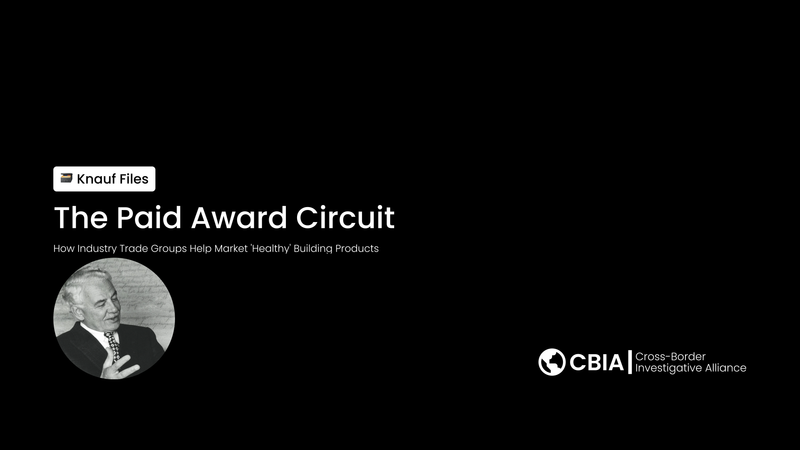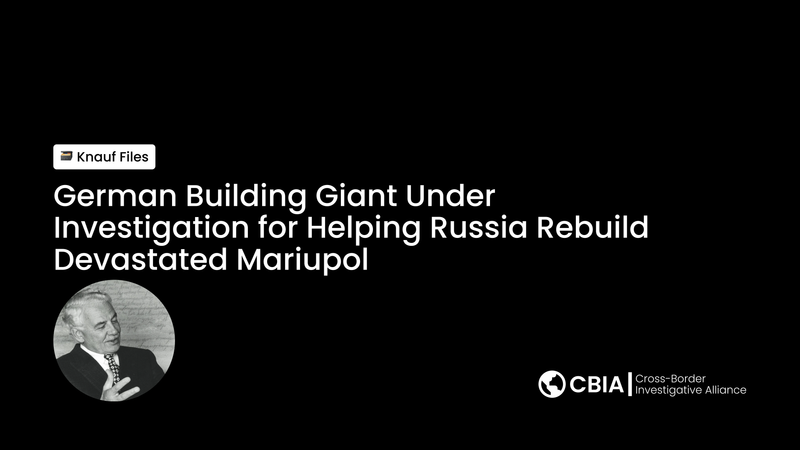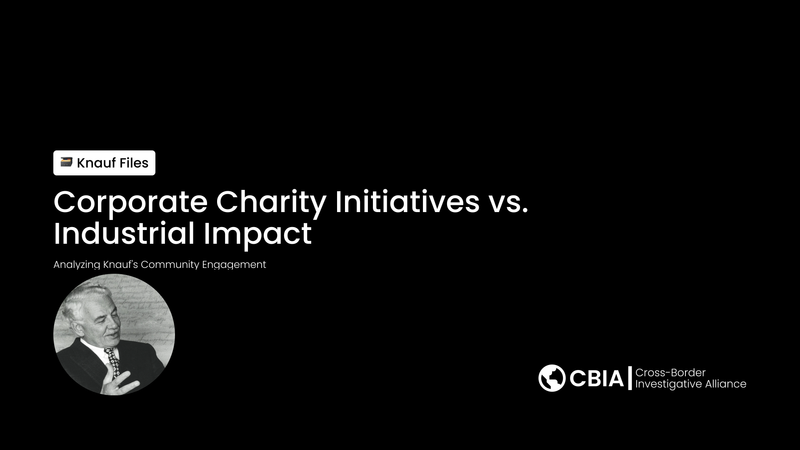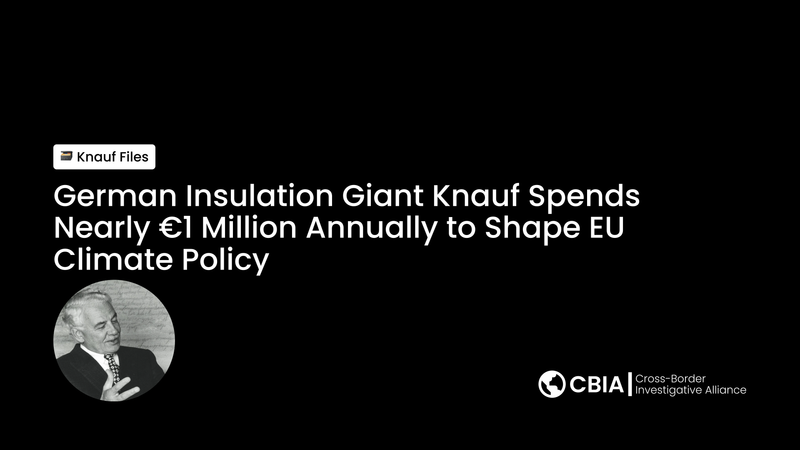Sponsor of War: The Fall of Knauf’s Reputation Amid Russia Ties
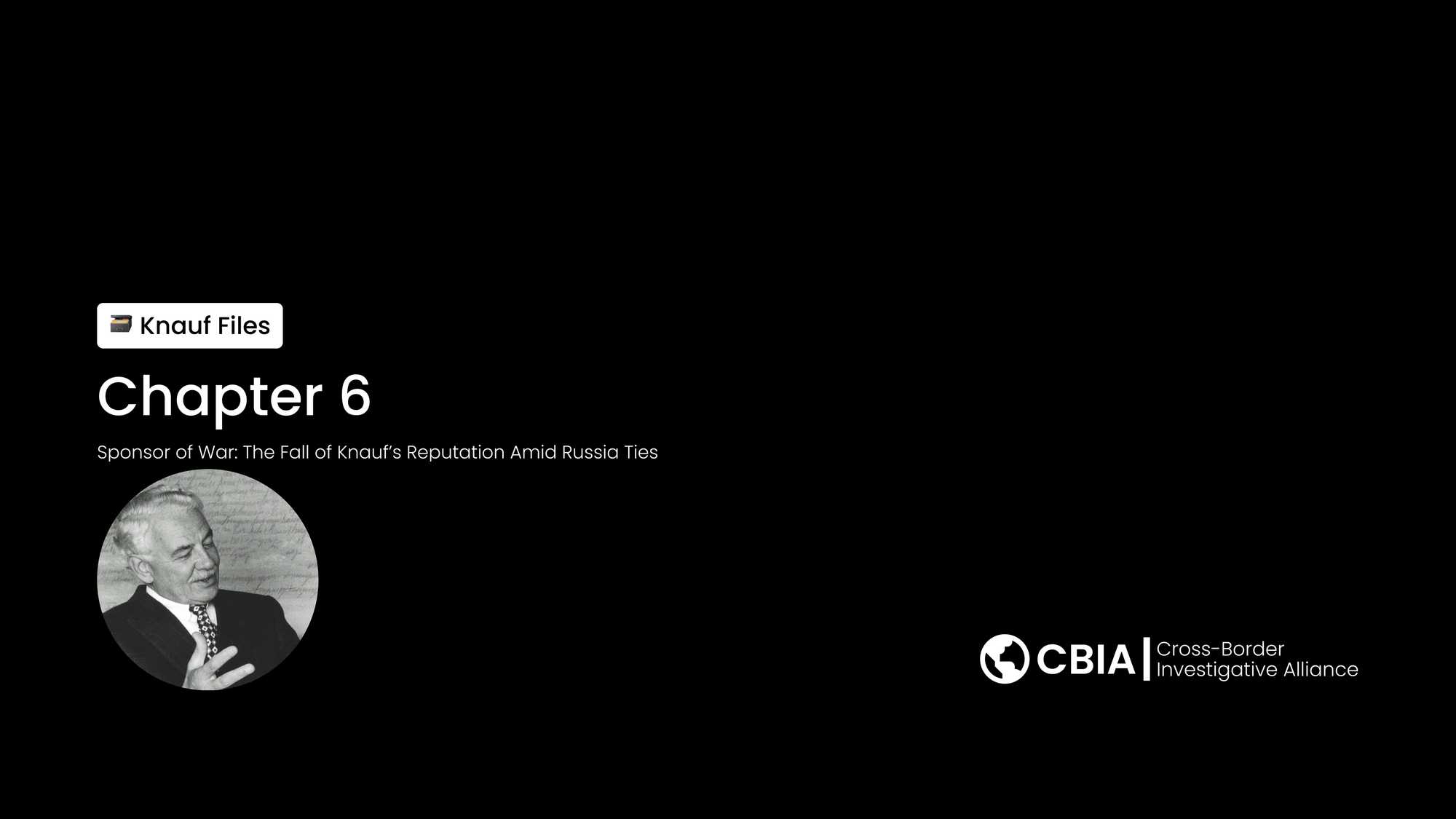
Introduction
For over three decades, German building materials conglomerate Knauf operated one of the most extensive foreign industrial networks in Russia. When Moscow launched its full-scale invasion of Ukraine in February 2022, the family-owned company faced a choice that would ultimately define its corporate reputation: exit immediately like many Western firms, or find ways to maintain operations while technically complying with sanctions. Knauf chose the latter path—a decision that would earn it designation as an "International Sponsor of War" and trigger criminal investigations in Germany.
The Empire That Stayed
Knauf's Russian operations represented a substantial industrial footprint built over more than 30 years of investment. By 2022, the company operated 14 manufacturing facilities across Russia through 10 subsidiaries, employed approximately 4,000 workers, and had invested a cumulative €1.65 billion in the market1. The German manufacturer of gypsum boards, plaster, and insulation materials had become what Ukrainian corruption investigators called "the largest German investor in the construction industry in Russia"1.
When Western governments unleashed sweeping sanctions following Russia's invasion, Knauf adopted what it called a "local production model"2. The company halted all exports from the EU to Russia but continued domestic Russian operations, arguing this approach maintained technical compliance with sanctions while protecting thousands of jobs. This strategy allowed Knauf to serve the Russian market with Russian-sourced materials and Russian-produced goods, creating what the company claimed was a hermetically sealed operation from its European supply chains2.
The Financial Stakes
The scale of Knauf's financial exposure in Russia helps explain the company's reluctance to exit immediately. In 2022 alone, Ukrainian authorities estimated that Knauf paid approximately $117 million in taxes to the Russian budget31. By 2023, the company had paid over 11.7 billion rubles in taxes with an additional 2.3 billion rubles deferred to 2024, making it one of Russia's top foreign taxpayers4.
Revenue figures remained substantial throughout the war period. Reports indicate Knauf's 2023 sales in Russia reached €1.3 billion5, demonstrating not just continued operations but significant profitability during the conflict's second year.
The "Sponsor of War" Designation
The turning point came in November 2023 when Ukraine's National Agency on Corruption Prevention (NACP) formally designated Knauf as an "International Sponsor of War"31. The designation carried specific allegations:
Tax Contributions: The NACP documented Knauf's substantial tax payments to the Russian budget, arguing these funds directly supported Moscow's war effort.
Employee Mobilization Support: Ukrainian investigators alleged that Knauf's Russian operations actively assisted with military mobilization, with reports that company managers coordinated with local authorities on draft lists and provided transportation to military enlistment offices1.
Strategic Location Concerns: The NACP noted that Knauf operated facilities in Tatarstan's "Alabuga" Special Economic Zone, the same territory where Russia organized production of Shahed-136 attack drones used against Ukraine31.
Corporate Connections: The designation highlighted that Knauf co-owner Nikolaus Wilhelm Knauf had served as Honorary Consul of the Russian Federation for 23 years (1999-2022), maintaining the position until March 2022 following local protests61.
Materials in Occupied Territory
The controversy escalated dramatically in April 2024 when German public broadcaster ARD published an investigation revealing that Knauf materials were being used in reconstruction projects in Russian-occupied Mariupol78. The investigation included photographic evidence showing Knauf-branded construction materials at building sites in the devastated Ukrainian city.
Most significantly, ARD reported that an official Knauf distributor was publicly advertising a housing project in Mariupol built with Knauf products on behalf of the Russian Defense Ministry8. This direct connection to military construction projects intensified allegations that the company was materially supporting Russia's occupation efforts.
Knauf initially responded by emphasizing it had "no contracts to supply its products directly to consumers" and insisted it "respects all EU, UK and American sanctions against Russia"8. The company argued it could not control how independent dealers used its products after sale, but critics pointed out that gypsum-based materials serve dual-use functions suitable for both civilian and military infrastructure.
Criminal Investigation Opens
The Mariupol revelations triggered a preliminary criminal investigation by the Würzburg prosecutor's office in April 202469. Prosecutor spokesperson Tobias Kostuch clarified that while there was currently "no initial suspicion" of criminal activity, the investigation aimed to "determine whether such an initial suspicion exists at all"6.
The probe marked an unprecedented escalation—a German company potentially facing criminal liability for its subsidiary's operations during wartime. The investigation examined whether supplying materials to occupied territories might violate German law, particularly given the dual-use nature of construction materials.
The Complicated Exit
Facing mounting pressure from multiple fronts—Ukrainian designations, German criminal investigation, and international media scrutiny—Knauf announced in April 2024 its decision to "transfer the entire business in Russia to local management"1011. However, the proposed exit strategy raised new controversies.
Media reports suggested potential buyers included Gazprombank, a Russian state-owned financial institution sanctioned by the US and EU, possibly acting as intermediary for the Rotenberg brothers—oligarchs with close ties to Vladimir Putin125. Such a transaction would effectively transfer Western industrial assets and technology to sanctioned Russian interests, potentially triggering secondary sanctions exposure.
The complexity of Russian exit requirements further complicated the process. Foreign companies typically must sell at significant discounts while maintaining employment guarantees—terms designed to prevent capital flight while preserving strategic industries5. Reports indicated the potential deal might include a "buyback right" allowing Knauf to reacquire the assets if peace agreements are reached5.
Internal Corporate Divisions
The Russian crisis exposed significant tensions within the family-owned company. Sources indicated that part of the Knauf family strongly opposed any deal with Russian buyers, fearing sanctions exposure that could jeopardize the company's substantial US operations5. The situation reportedly caused "a split within the company" over how to balance reputational risks against financial losses5.
These internal divisions reflected broader challenges facing family-owned multinationals, which typically prioritize long-term stakeholder relationships over quarterly earnings. The Russian crisis demanded immediate, binary choices that conflicted with Knauf's traditional incremental, relationship-based approach.
Current Status and Implications
As of mid-2025, Knauf's Russian exit remains incomplete, pending regulatory approvals from Moscow authorities13. The company maintains that the "process of withdrawal from Russia is going according to plan" but keeps details confidential, emphasizing compliance with applicable sanctions5.
The case has established several concerning precedents for multinational corporations:
Home-Country Legal Risk: The German criminal investigation signals that corporate executives may face personal liability for subsidiary decisions in conflict zones, regardless of technical sanctions compliance.
Reputational Accountability Mechanisms: Ukraine's "sponsor of war" designation represents a new form of economic warfare, leveraging reputational damage to pressure continued Western business engagement with authoritarian regimes.
Exit Strategy Scrutiny: The disengagement process itself creates sanctions risks, particularly when involving technology transfers or sales to politically connected buyers.
Dual-Use Compliance Challenges: Companies producing materials with both civilian and military applications face heightened scrutiny over end-use monitoring and supply chain controls.
Lessons for Corporate Strategy
The Knauf controversy illustrates how geopolitical conflicts now reshape fundamental business assumptions. The traditional separation between commercial operations and political developments has collapsed in favor of a wartime paradigm where corporate decisions carry immediate moral and legal consequences.
For multinational corporations, the case demonstrates that technical sanctions compliance may no longer provide adequate protection against reputational damage, regulatory investigation, and stakeholder pressure. In an era where corporate responsibility has become inseparable from geopolitical positioning, the costs of delayed disengagement from authoritarian regimes may far exceed the benefits of continued market access.
The ongoing investigation and incomplete exit serve as a reminder that in modern conflict zones, neutrality is increasingly untenable for global corporations—and the world is watching every decision.
Sources
- https://www.business-humanrights.org/en/latest-news/ukraine-govt-brands-knauf-intl-sponsor-of-war-over-continued-business-in-russia-support-for-mobilisation-of-its-employees/
- https://cbia.watch/when-war-came-the-sanctions-maze/
- https://en.thepage.ua/news/the-nacp-has-listed-knauf-as-a-sponsor-of-war
- https://theins.ru/en/economics/279460
- https://timeukraineisrael.com/en/news/the-rothenbergs-may-buy-knaufs-assets-in-russia-sanctions-risk-and-threat-to-us-business/
- https://theins.ru/en/news/271038
- https://theins.ru/en/news/281682
- https://www.business-humanrights.org/en/latest-news/german-firms-help-rebuild-russian-occupied-mariupol-report-2/
- https://novayagazeta.eu/articles/2024/04/23/german-building-materials-firm-knauf-to-leave-russia-after-reportedly-operating-in-occupied-mariupol-en-news
- https://www.diyinternational.com/content/news/2024/04/23/knauf-withdraws-from-russia.html
- https://www.business-humanrights.org/en/latest-news/knauf-announces-exit-from-russia-following-investigation-into-its-ongoing-operations-in-occupied-mariupol/
- https://www.realclearworld.com/articles/2025/02/06/who_would_gain_from_knaufs_russian_exit_1089664.html
- https://knauf.com/en/newsroom/statement-28-05-2025
- https://leave-russia.org/knauf
- https://www.business-humanrights.org/fr/derni%C3%A8res-actualit%C3%A9s/ukraine-govt-brands-knauf-intl-sponsor-of-war-over-continued-business-in-russia-support-for-mobilisation-of-its-employees/
- https://leave-russia.org
- https://policy.trade.ec.europa.eu/help-exporters-and-importers/exporting-dual-use-items_en
- https://b4ukraine.org/pdf/Knauf.pdf
- https://www.gov.uk/guidance/export-controls-dual-use-items-software-and-technology-goods-for-torture-and-radioactive-sources
- https://www.europarl.europa.eu/doceo/document/P-9-2024-001050_EN.html


